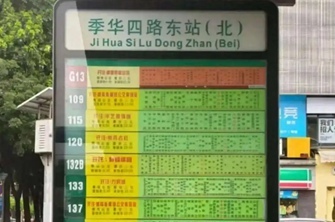Wei Zuolai (Professor of the School of Economics and Business of Guangdong University of Foreign Studies, Executive Vice President of Guangdong Provincial Institute of Tertiary Industry):
In order to cope with the severe impact of COVID-19 on the economy, many local governments in China have introduced consumption voucher policies in combination with their own financial resources. This is a positive action to restore the order of production and life and ensure the improvement of people's livelihood, which undoubtedly plays a positive role in stimulating consumption, invigorating the market and stimulating demand.
On the one hand, the consumption voucher policy is an important "safety signal". The behavior of local governments issuing consumption vouchers to promote consumption is equivalent to endorsement and guarantee of local consumption environment safety with government credit, which undoubtedly has a positive guiding role for the public to eliminate health and safety concerns and actively go out for consumption. On the other hand, the consumption voucher policy is also a "signal of determination" for the government to help enterprises return to work and production. Issuing consumption vouchers to encourage consumption is actually a strong signal that the government helps enterprises. This will also play a positive role in boosting entrepreneurs' confidence in the market and rallying the joint forces of returning to work and production.
However, the characteristics of the consumption voucher policy suggest that we should not have too high expectations on the actual effect of the consumption voucher to stimulate economic growth. First of all, due to financial constraints, the scale of consumer bonds that can be launched in various regions is limited. Secondly, the consumption content is limited. At present, the consumption coupons launched in various regions are mainly for catering, tourism, commerce, culture and sports and other life service industries, which will objectively result in consumption crowding out and unfair policies for other life service industries and production service industries, affecting the balanced development of the industrial chain. Finally, the consumption area is limited. The market economy is a dynamic and circular network system of regional division of labor, and the non local consumption is an important force to stimulate large consumption. However, most of the consumption vouchers issued in various regions are restricted to consumption in the local market. If the policies in different regions are unbalanced and no resultant force can be formed between them, the consumption multiplier effect may be affected.
Therefore, in order to boost the economy from the consumer side, the current policy still has room for improvement. The following aspects can be considered. First, increase the industry coverage of the policy to stimulate demand. This requires that consumption vouchers should cover all industries as much as possible and be freely selected by the public according to their own preferences, so as to generate greater social welfare. The second is to integrate regional consumption voucher policy resources. The overall implementation of policy resources to stimulate consumption by provinces and even the whole country is better than that by cities and districts alone. Third, to stimulate consumption, we should focus on the consumption environment. To boost consumption, especially service consumption, we should also focus on improving the health and safety of consumption environment and promoting intelligent and networked production and service consumption mode. Fourth, in the long run, boosting the economy will ultimately depend on the supply side. The issuance of consumer bonds is only a short-term policy action to stimulate demand, which focuses on activating the market and boosting confidence. In the long run, restoring market vitality should focus on using the limited policy resources to the production end of enterprises. In view of the specific difficulties faced by enterprises, especially small, medium-sized and micro enterprises and self-employed businesses that have been greatly affected by the epidemic, we should reduce taxes, postpone debt repayment, provide discount or low interest loans, and dredge the circulation and transmission mechanism of labor, capital, information, raw materials and other production factors, Ensure smooth supply chain, etc., and create a good external environment for the post epidemic rebirth of enterprises.
(Zhang Dongmei)
(Editor in charge: Li Yan)














